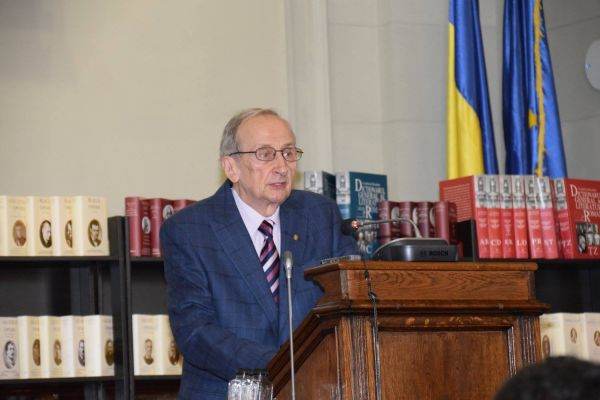Academician Mircea Martin, professor emeritus at the Faculty of Letters of the University of Bucharest, drew attention to the fact that formulas belonging to the ideology of woke or cancel culture (it is a modern form of ostracism, which involves the expulsion of someone from social or professional circles – online on social media, in the real world, or both), manifested primarily on the campuses of major American universities, “are currently circulating in Romania, among young people.” According to the academic: “We are witnessing a phenomenon that has become almost routine. After decades of political struggles and ideological debates, which primarily animated the campuses of major American universities, we have reached a revaluation of culture from a political perspective. It is not just about the infiltration or impregnation of culture by politics and ideology. It is really about assimilation. Culture becomes politics – when I say culture I mean arts, literature. Which does not mean that the equation works the other way around. No, politics is not culture. It preserves its autonomy, integrity, domination. Everything is politics. This formula is also circulating in Romania among young people.”
The renowned professor emphasized that we are dealing with a position inspired by Marxism, a position that was also dominant in our country during the era of communist totalitarianism: “The historical paradox is that we are witnessing such a politicization of culture in an era and in cultural spaces of complete freedom. Moreover, this subordination is considered, appreciated as an emancipation, as a step forward, as a sign of progress. One does not see or does not want to see the similarity, the resumption of a position already experienced in state communism, a position that, although manifested in conditions of freedom of choice and expression, means a return to the confusion of values. It would be boring for me to develop everything that separates me from what is called the doctrine or ideology of woke or cancel culture. I would only stop at a strange, more surprising but exemplary aspect for current trends, namely the decision of Princeton University to no longer force students studying classical languages to learn these languages. Why? Because Greco-Latin culture was, I quote, “the instrument complicit in segregation, slavery, white supremacy, cultural genocide”. It seems difficult to me to comment on such a decision and, obviously, that the question I asked (“We synchronize. But with whom, with what?”) is and is not rhetorical. I mean, obviously I do not agree at all with synchronization with such a tendency”. Mircea Martin advocated synchronization with the West, which “in the past was France”, and “in recent decades it is America”, but he dissociated between ideologies that “defend the differences of peripheral cultures and those that “oppose the universalist, universalizing claim, in the sense of projecting one’s own conception onto others, a conception that belongs to the European West, and which the Americans, through intellectuals in large university centers, have adopted”.
Mircea Martin participated in the national colloquium “Do we synchronize? Do we synchronize. But with whom, with what?”, dedicated to marking the 100th anniversary of the publication of the volume “History of Modern Romanian Civilization by Eugen Lovinescu”, organized by the Romanian Academy, together with the National Museum of Romanian Literature, the Central University Library “Carol I” and the Faculty of Letters of the University of Bucharest.
Source link : http://www.bing.com/news/apiclick.aspx?ref=FexRss&aid=&tid=6731378ed54f4e06b489c29e99c4b092&url=https%3A%2F%2Fwww.bursa.ro%2Facademician-we-have-reached-a-revaluation-of-culture-from-a-political-perspective-82978354&c=10892979259454400911&mkt=de-de
Author :
Publish date : 2024-11-10 14:04:00
Copyright for syndicated content belongs to the linked Source.
